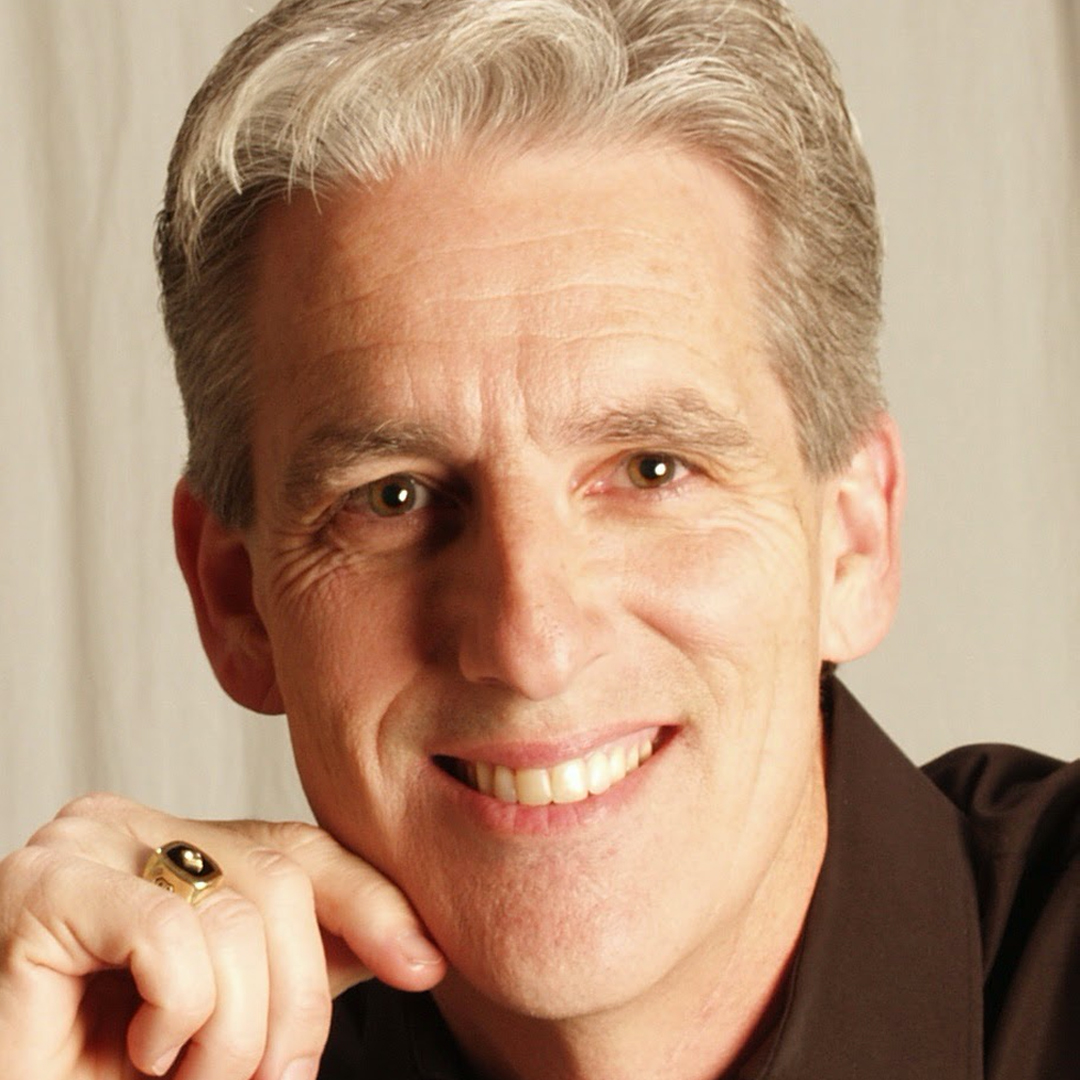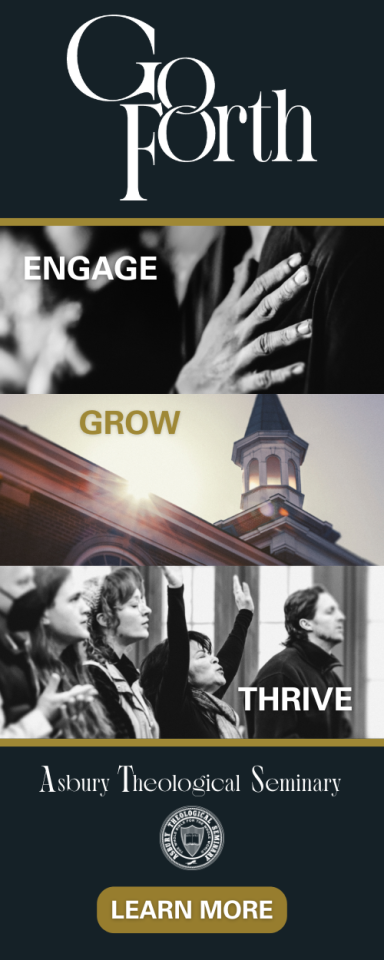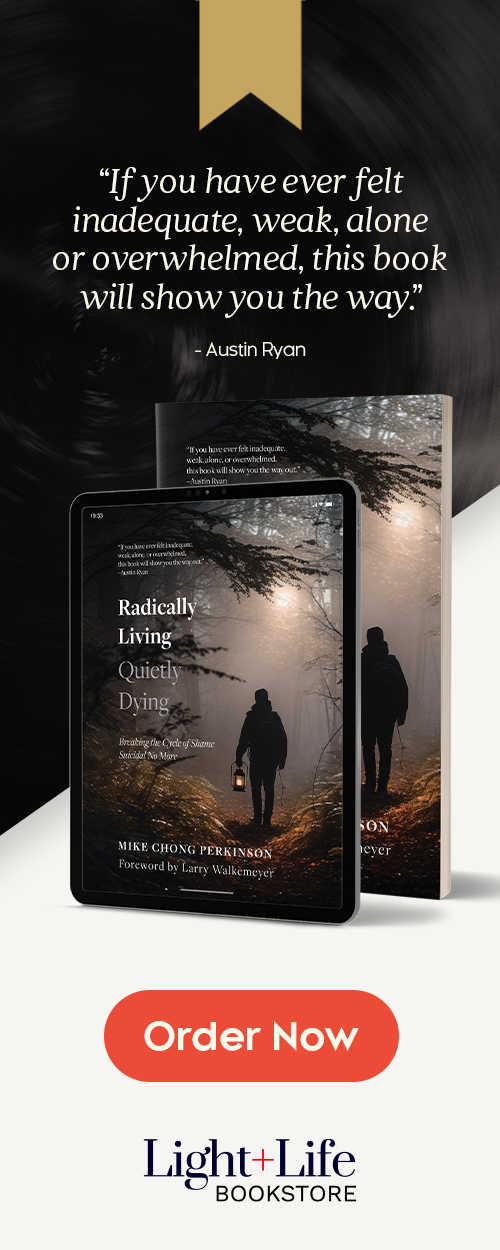
Kevin W. Mannoia
by Kevin W. Mannoia
I had the joy of driving my children to school occasionally when they were young. Before jumping out of the car, sometimes I’d ask, “What’s your last name?”
“Dad! You know my last name,” they would retort.
I’d press, “What’s your last name?”
With a roll of the eyes, or a sigh, they would say, “Mannoia.”
“Good! Don’t ever forget it.” And off they’d go to another day of school.
While it may have seemed like a useless exercise to them, I knew that every time they proclaimed their name, it would anchor my children to values and foundations that would secure them through life. Implicit in my question was the reminder that they belonged to a family, and that their family stood for something that would help them in the course of their day. If they were praised, their name reminded them to remain humble. If they were ostracized, they knew they were wanted and connected. If they were embarrassed or made fun of, they knew where their worth came from. If they were bullied, their identity was secure. If they were asked to do something out of character, their response was easier. Occasionally, after a particularly challenging experience, we would spend time at the dinner table remembering that name that anchored them.
Amidst huge cultural currents, churches face demands to conform to standards that can easily undermine their core identity. Whether it is legislative initiatives, economic pressures, political shifts, or even the need to keep a strong financial bottom line, these pressures vie for the soul of the church. Without a strong identity, it is easy to accommodate or become defensive. The pursuit of institutional identity has never been more important. For churches, Christian universities, and denominations, that means anchoring themselves in a spiritual stream that gives them meaning, value, belonging, and a framework in which to face whatever comes their way.
Imagine a great river system. It is always moving, changing, and bringing life wherever it flows. This is the river of God in the world. This river has a life-giving purpose in the streets of broken cities, ivory towers of the academy, cubicles of everyday working people, poor and affluent neighborhoods alike. There is no crevice of human life where this river may not have effect. The people of God are those who have chosen to immerse themselves in its flow. They become the diverse reflection of God in all the desert places of the world. As a result, lives are restored, systems are redeemed, and all of creation is being made new.
The river of God is like other rivers. It has many streams or tributaries that reflect the diversity of God’s work in the world. Together, they make up the whole river system. One stream is not better than another, but each is different. Some flow rapidly through rocky terrain of conflict and struggle with whitewater rapids. Others meander through meadows in quiet peacefulness. Some have twists and curves responding to events and changing human needs; others run rather straight. Together, they form the wholeness and diversity of God’s river — the church.
One of these streams is called the Wesleyan Holiness stream in which the Free Methodist Church was birthed, formed, and thrives. We trace our heritage from the early church through the Roman Catholic, Anglican, and Methodist movements. More recently, our Wesleyan theology found expression in an emphasis on righteous living and social engagement in the Holiness movement. At times, we forgot who we were and became distracted and somewhat misguided in inaction and legalism. In the mid-20th century, for example, when Holiness people would ordinarily be fully engaged in matters of justice as reflected in the civil rights movement, many in our stream were notably silent. A core value of our founding identity forged in the abolitionist efforts of the 19th century was silenced and replaced by heavy legalism as we suffered a debilitating amnesia. Thankfully, members of this stream of the church, including the people called Free Methodists, are remembering.
The Holiness movement brought forth denominations like the Free Methodist Church, Church of the Nazarene, Foursquare Church, Church of God in Christ, and Salvation Army among many others — each founded by people in love with Jesus and full of the passion of God’s Holy Spirit. That passion for heart purity caused behaviors to change. Inner motivations of the heart were cleansed to be fully devoted to God and God’s holiness. Shaped by the growing nature of God’s holiness within them, they launched initiatives that made a difference in the cultural issues of their day. Catherine and William Booth’s heart for righteousness overflowed to reach the streets of London. B.T. Roberts was compelled to higher thinking and engagement that resulted in a new denomination. Roberts along with William Seymour, Orange Scott and others were driven to engage the political and cultural issues of slavery and discrimination while raising the standard of personal holiness. C.H. Mason, Phoebe Palmer, Phineas Bresee, Daniel Warner, Amy McPherson and others were consumed by the need for inner piety and full salvation through Jesus.
The Free Methodist Church teems with the ongoing influence of this stream that reaches out to engage all people with compassion, grace, and humility so that Jesus Christ will be reflected, and God’s river will bring life. The characteristics of our Christian heritage help when it comes time to live out our witness in everyday situations. Some of these contemporary situations are even more complex than a century ago. Remembering who we are is more important than ever. Three characteristics in particular reflect the general tilt of the Free Methodist Church’s Wesleyan Holiness identity. We tend to be…
Centered More Than Bounded
It came time to teach my daughter to drive on a freeway. City streets were one thing, but the freeway was a frightening proposition to her. As we entered the “clover leaf” entrance ramp, I noticed that the long, sweeping curve became a series of straight lines punctuated by a jerk to keep the car on the ramp. I pondered what was happening in her head. As we approached another long curve to exit, I told her: “This time, keep your eyes on the INSIDE edge of the curve and stay close to it.” Initially she resisted the idea for fear of driving off the road. But she complied and proceeded to exit the freeway in a smooth, perfectly executed path. When driving your car around a long curve, if you fix your eyes on the outside edge you may find that you drift toward it. Fear is the motivation to “stay away” from the outside edge. If you look at the inside edge, you find yourself drawn to stay close. We are drawn to where we fix our eyes. Desire allows freedom to replace fear. In remaining focused on the center, the perils of the edge will take care of themselves. It doesn’t mean they don’t exist, it’s just that fixing your eyes on the center will keep you from violating the boundary.
We attempt to secure ourselves to the anchored center of our Christian orthodoxy and heritage. In so doing, we use less effort to define the restrictions or boundaries. These boundaries may take the form of theological, political, or social issues. This centered approach results in some diversity of opinions and even messy, gray areas of theology, politics, and social issues. Whether it is around economic principles, political preferences, ethnic discrimination, immigration, or any other major cultural issue, there will be diversity among us. However, passion for the centered holiness of God grows to overpower the fear of violating boundaries and replaces it with the freedom of finding unity together on the path of bringing God’s holy nature into the mix.
Relational More Than Propositional
If you are confronted with a propositional statement, you will likely rely mostly on your analytical skills to test the proposition. “All cats run east on Tuesday afternoons.” You say, “Mannoia must be crazy to suggest such a thing.” You begin with doubt and then examine the proposition analytically. You try it, study it, and test it to see if it’s really true. Your objective is to determine compliance and accuracy. But, when you meet new people, you rely upon relational skills to know them. “I want to get to know Suzanne.” You begin with desire to know her and then you talk, ask, and spend time with her. By asking questions, you admit you don’t know her; you have coffee, lunch, and hang out together. You even share about yourself as a way to bond with her relationally. In getting to know Suzanne, you are more relational in your approach. Your objective is to know her as you become known.
We relate differently to a person than we do to a proposition or doctrine. Fundamentally, we see truth not really as a proposition, but as a person — Jesus. That shapes how we then bring the truth of the gospel to the world. The Free Methodist Church will always see people more as image bearers than as representing a doctrinal, social or political position. We desire to relate to them even if they think differently about important matters. Those differences do not threaten our anchored, centered identity. In our engagement with culture and communities, even those that are different than ours, we lead with the relational nature of understanding that salvation is inherently relational proximity to God through Jesus.
Descriptive More Than Prescriptive
A prescription is a formula to be applied in order to fix a problem. A description comes only after an experience. When you write in your journal, you are usually describing what went on in your life and how you were affected by it. When you prescribe a course of behavior or expectations for thinking, you are setting targets to achieve through personal effort. Wesley didn’t write a book on systems of theology. He wrote a journal. For example, in 1738 he wrote, “… I felt my heart strangely warmed. I felt I did trust in Christ, Christ alone for salvation, and an assurance was given me …” He experienced God in God’s time and way. Then he wrote about it, forming his understanding of God as a result. Of course, we study. However, we allow the deep mysteries of God to come to us through reflecting upon Scripture that enlightens our thinking, is shaped by our tradition, and informs our experience. When we anchor ourselves to a centered relationship with Christ through God’s Word, confrontational experiences become possibilities to experience and see God at work. This is a lifelong journey of discovery and becoming whole. There may be uncertainty along the way, but we trust in the assurances that the principles of God and the purposes of His Word will not fail.
These characteristics represent a tilt, not categorical extremes. Embracing the kingdom, especially in the heritage of the Wesleyan Holiness stream, means that there are elements of both ends of a spectrum of Christian faith. Defining the degree of that tilt is always in flux and contributes to life-giving conversations. Although this may keep us from committing to documents that attempt to define positions of a boundary, we are able to engage with peaceful confidence, because we remain deeply anchored and rooted as Christ-centered, Bible-believing Christians in love with God. We bring life wherever we go.
Standing in the rich tradition of our Wesleyan Holiness stream, the Free Methodist Church engages in the major cultural shifts around us with confidence. This stream leans into the mission of bringing the hope of God’s salvation into the real circumstances of life. It is a Spirit-filled manifestation that emphasizes both personal transformation and social engagement. We are not set apart in isolation. The hope of God’s wholeness can restore each human heart as well as influence culture. Reflecting God’s holy nature compels us to take part in the real struggles around us with compassion and advocacy. In doing so, we live out our identity as Free Methodists. There’s meaning and confidence that comes from that identity. Remember your name!
+










